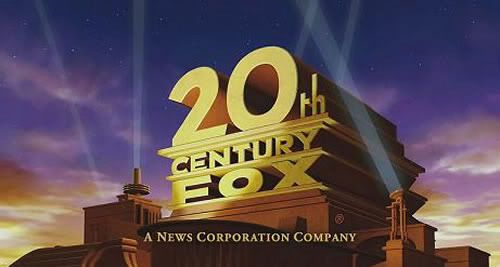
I can remember a time when the famous 20th Century Fox logo and fanfare meant only one thing to me: Star Wars. I don’t know how old I was when I first saw the original film, but the rousing Fox music so seamlessly blended with John Williams’ opening score that the two were melded in my mind.
It would be years before I realized that all 20th Century Fox productions began with the exact same preamble and that George Lucas was the real creative force behind Star Wars.

Such is the power of corporate branding.
I had similar confusion when I played video games. At the arcade or at home, I associated my favorite titles with companies rather than individuals: Nintendo made Super Mario Bros., Konami made Castlevania, Capcom made Mega Man, etc. It didn’t help that video games never came with opening credits and the closing credits were packed with fake names like Miyahon and Yuukichan’s Papa.
The key difference here is that by the time I was a teenager, I already had a concept of who my favorite filmmakers were — not just actors but directors, writers, and even special-effects wizards. Yet even as an adult who actively reads and writes about video games, I hardly know any of the names behind the scenes.
And that is entirely the industry’s fault.
For starters, little progress has been made on the issue of credits. Turn on any video game, and instead of people’s names, you’ll see publishers’ logos, studio logos, tech company logos, and a bunch of copyright information. That’s as true for a game made twenty years ago as it is today. The only difference is that modern games might include an option to watch the credits in the main menu or that the credits might roll when you play for the first time.
There’s also the issue of marketing. Watch a movie trailer, and you’ll almost certainly see names on the screen: actors, of course, but probably the director as well. If the filmmakers have any relevant past credits, they’ll get a mention too (“From the director of Robocop and Total Recall”). If it’s a prestigious film, you’ll hear talk of award nominations or wins, even if those awards were won years ago in other fields (“Starring Academy Award winner Ben Affleck”).
Watch a video-game trailer, and what do you get? Explosions. Blood. Bouncing breasts. Cut-scenes, cut-scenes, cut-scenes…then maybe some gameplay. Nothing of contextual value — only action. You’re more likely to see the name of a celebrity voice actor than anyone involved in designing or programming the project.

I know the process of making a film and making a game are very different, but that’s no excuse for shrouding thousands of workers in anonymity. Going from no credits and nicknames to proper credits is an improvement, but video-game publishers still put the company brand ahead of individual creators even today. This is detrimental to both game makers and consumers alike.
From the creators’ standpoint, it’s simply disrespectful to downplay their identities as if games merely spring forth from the company itself. When I spoke to former Capcom executive Keiji Inafune, he told me that “the person coming up with the design, the good ideas…that's more important than which company is throwing money at it.”
For consumers, it means their purchasing decisions are less informed. Activision will release yet another Call of Duty game this year, but only media-savvy customers will know that many of the creators of Modern Warfare 2 did not contribute to Modern Warfare 3.
Corporate branding can also hurt when business decisions anger genre fans. Look at the recent negative publicity surrounding Capcom. In 2011, the company has taken heat for: DRM that rendered certain PlayStation Network games unplayable during the recent outage; a 3DS game with save-data that cannot be reset; canceling two Mega Man games, and then suggesting that fans were to blame; and announcing a new edition of Marvel vs. Capcom 3 just four months after launch (due out this year!).

All of these unpopular decisions were likely made by different people, and few — if any — came directly from the producers or directors responsible for making the games. But due to corporate branding, there exists only an image of Capcom the monolith — one that now faces fan backlash.
The good news is that smaller studios are taking the lead on promoting their creative talent alongside their products. Irrational Games and Q-Games use podcasts to reach out to fans. Platinum Games has produced audio commentaries for Bayonetta and hosted live-stream events. These extra-curricular activities may not solve the credit problem, but they are at least positive steps in the right direction of publicizing employee names and faces.
It’s a catch-22: Only star developers like Hideo Kojima get top billing on their games, but without promotion, there cannot be more star developers. The more time in the spotlight afforded to video-game producers and directors, the more likely they will become the marquee names of the future.
Just as actors once overcame the studio system and became stars, so should the creators of video games outshine their employers' logos.
Daniel Feit lives in Japan with his wife and son. His written work has been featured on Wired Game|Life, 1UP, GamePro and Film Junk. Follow him on Twitter @feitclub for gaming news, Japanese oddities, and photos of things Mr. Feit has eaten.


